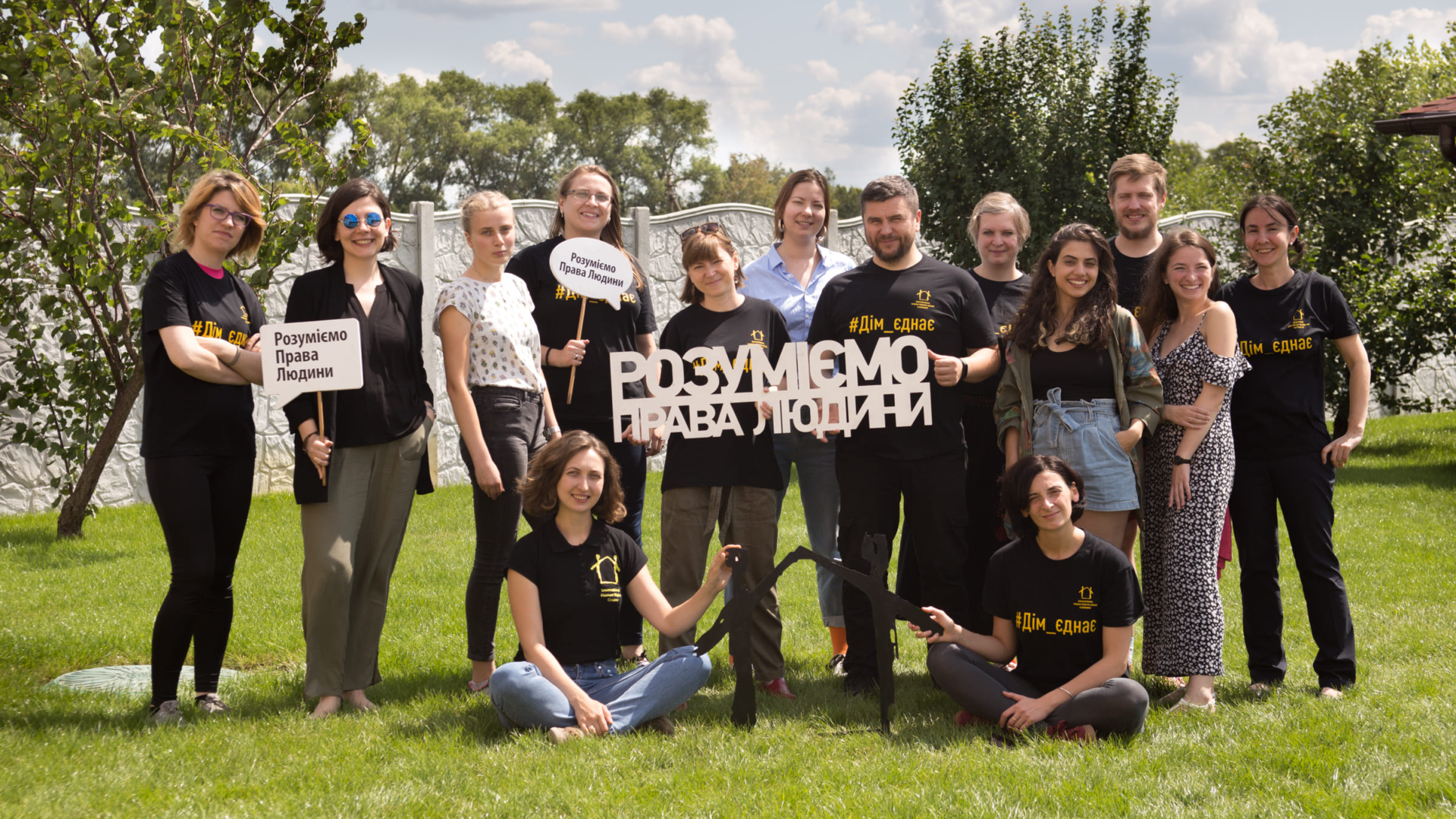Held each summer since 2016 by Educational Human Rights House Chernihiv, the Fest has become one of the largest human rights festivals in Ukraine. Executive Director of Educational Human Rights House Chernihiv, Serhiy Burov, heralds the Festival as a platform for the exchange of educational tools in the field of human rights, calling it “a methodological laboratory within which innovative human rights education products are produced.”
Burov further points to the Fest as “an opportunity for people who have studied or participated in joint human rights campaigns to meet, interact with like-minded people, to plan future joint activities, and, of course, to have some rest.”
Fest organisers sought to inspire participants and help them engage with the Universal Declaration of Human Rights, providing an insight into why rights are important to society and in general.
“All human beings are born free and equal in dignity and rights. They are endowed with reason and conscience and should act towards one another in a spirit of brotherhood”.
Universal Declaration of Human Rights, Article 1
In this spirit, the Festival reaches out to people from all walks of life from all regions of Ukraine, and engages them in human rights discussions, including on the values and importance of human rights to everyday life.
Speaking at the opening of the festival, Judge Arkadii Bushchenko from the Supreme Court of Ukraine instilled the importance of protecting human rights and values, explaining that “Human rights are… red lines that cannot be crossed because it will lead to catastrophe.”
Reflecting on Fest in 2019, coordinator Nina Khoma praised the Festival’s ability to engage new communities of people, organisations, and participants, expressing hope that the opportunity will lead to new collaborative activities.
Speaker at the festival Maxim Butkevich described it as “probably the most structured, the most intense and the most ‘working’” of all the Festivals he has been to.
Themes and participants of the Festival
The Festival was divided into three thematic blocks, each for three days. The three themes were “human rights at school”, “practices for combating torture in detention centers”, and “human rights in educational outreach activities.”
The “human rights at school” event was attended by participants of the educational system and human rights activists working on formal education, and included schoolteachers talking about civic duties and human rights.
“Practices for combating torture in detention centers” gathered many groups including; police officers; journalists; monitors of the National Preventive Mechanism for Torture (NPM); lawyers; psychologists; civic activists combating torture; employees of penitentiary institutions, and students of the Academy of State Penitentiary Service of Ukraine. Representatives of Educational HRH Chernihiv spoke about Ukrainian courses within the context of the network of Human Rights Houses’ educational programme on international human rights law – International Law in Advocacy (ILIA), which is coordinated by the House in Chernihiv.
“Human rights in educational outreach activities” included participants from the NGO “Civic Network “OPORA” (which protects election rights across Ukraine), representatives of the free secondary legal aid system, movie clubs on media education on human rights “Docudays UA”, and civic activists from human rights organisations.

In addition to the thematic blocks, Fest included two working meetings. The first brought together defenders from the network of Human Rights Houses from Armenia, Georgia, Russia, Belarus, Poland, Serbia and, Ukraine to plan an upcoming school for young activists. Houses in Belgrade, Warsaw, Voronezh, Chernihiv and Belarus currently holding educational activities in the form of various schools.
The second focused on challenges and threats in international human rights law, gathering judges and lawyers who are graduates of the training course “Human Rights Standards” – carried by the Ukrainian Helsinki Human Rights Union and the House in Chernihiv.
Participants particularly praised Fest’s practical tasks to develop products for outreach, and its focus on aspects such as active and responsible citizenship, forming student self-government, counteracting bullying in educational institutions, patriotism and its understanding in modern schools, and inclusive studying.

The sessions during Fest were supported and carried out by people with considerable experience in defending human rights and who are active participants in human rights movements, and included the most active graduates of the House’s educational programme “We understand human rights”. On cooperation in the organisation of the Festival, coordinator Nina Khoma explained that most of the team for the festival were volunteers or recent graduates, but that staff from the House and its organisations were also involved, calling them the Festival’s heart and soul and vital to ensuring the programme’s sustainability and continuity of the House’s projects.
Supporters of the Festival
Educational Human Rights Fest 2019 was possible thanks to a partnership with the Human Rights House Foundation with the financial support of the Norwegian Ministry of Foreign Affairs, the financial support of the US Embassy in Ukraine and the “Human Rights for Ukraine” project implemented by the United Nations Development Program in Ukraine and funded by the Ministry of Foreign Affairs of Denmark. The Educational Human Rights Fest is part of the Action Plan of the All-Ukrainian Educational Program “Understanding Human Rights”.
Top photo: Participants of the international working meeting of the network of Human Rights Houses. Copyright: Educational Human Rights House Chernihiv.





